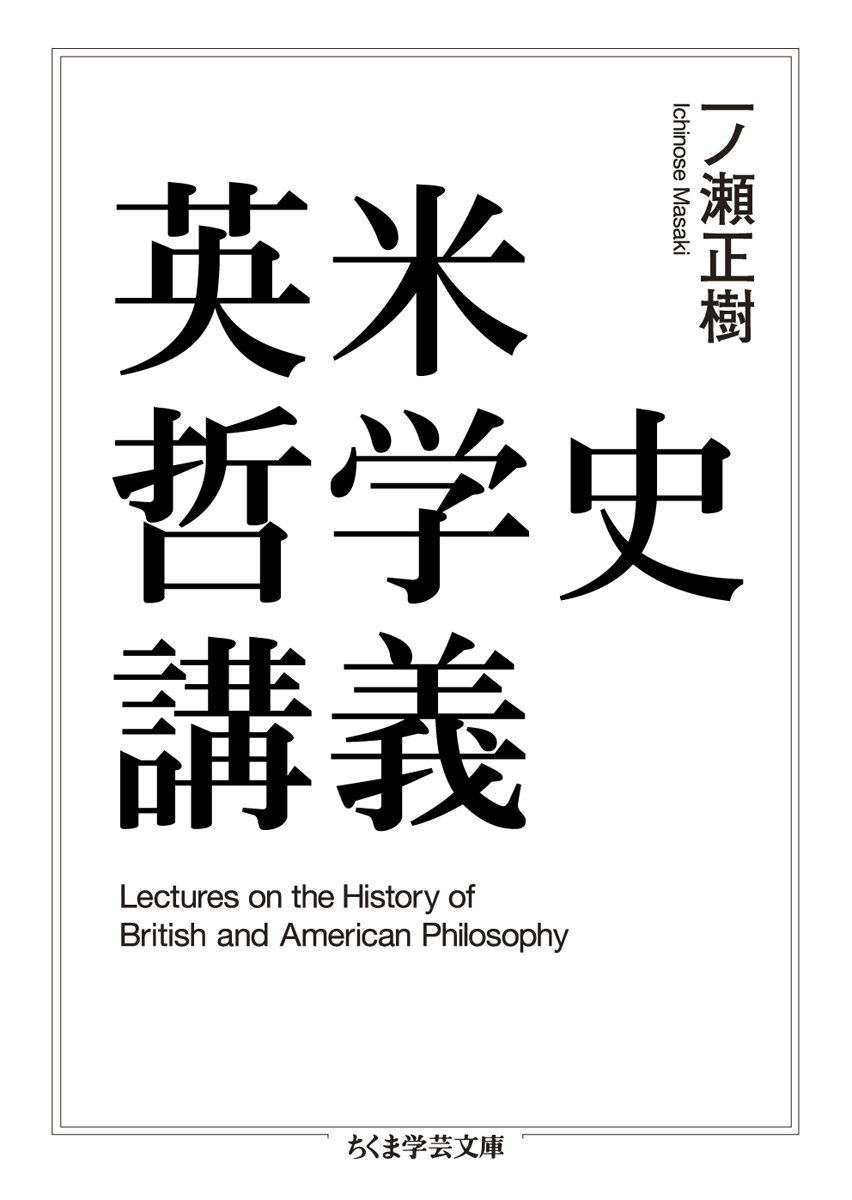
Title
Chikuma Gakugei Bunko Eibeitetsugakushi-Kōgi (Lectures on the History of British and American Philosophy)
Size
384 pages, pocket edition
Language
Japanese
Released
July 06, 2016
ISBN
978-4-480-09739-2
Published by
Chikuma Shobo
Book Info
See Book Availability at Library
Japanese Page
The volume provides an overview of the history of philosophy in the Anglosphere from the Middle Ages to the Bayesian epistemology of today from the basic perspective that empiricism has been a consistent trait of philosophy in the English-speaking world. It not only comments on classical British empiricism but also focuses on utilitarianism, one of the positions in ethics, and the analytical philosophy of today. In addition, a chapter is assigned to comment on 20th-century American pragmatism. This is the first-ever volume in Japan to offer such an overview of the history of British and American philosophy. “Experience” in this volume does not refer to Kantian one of “senses and perceptions,” but means “to try by making efforts,” which is closer to its Greek origin and to our daily language. Bacon and Locke, founders of British empiricism, conceptualized experience in this very manner, and in the actual context of empiricism, experience is understood not as merely involving senses and perceptions but with an emphasis on experiments, efforts, and labor. Therefore, the scope of empiricist philosophy extends to contemporary philosophy of science and debates on intellectual property rights. As can be discerned from this concept of experience, empiricism, in fact, discusses knowledge and practice in their indivisible and tight connection.
From this background, utilitarianism, which exerts much influence on ethics, has emerged. Simply put, utilitarianism refers to the normative position that one should take an action that would maximize the total sum of each person’s empirically measurable subjective happiness. From the connotation of the word “utility,” utilitarianism is often misunderstood as an egoism that approves of pursuit of personal profit. However, we need to pay attention to the point that in utilitarianism what is most important is the total sum or total amount of happiness in our society. Utilitarianism bans actions that would increase one’s own interest but that decrease the happiness of the society as a whole. In order to avoid misunderstanding, I propose to use the term daifuku-shugi (maximizing happiness principle). A number of questions including those based on misunderstanding have been raised about utilitarianism/daifuku-shugi, and the volume examines a wide range of issues from the “trolley problem,” which involves the comparative value placed on human life to Singer’s question that deals with animal life.
In addition, the most successful contemporary form of empiricism tradition is analytical. This volume starts with logical positivism, which appears to have emerged under the influence of the Kantian concept of experience; examines issues having to do with symbolic logic and implications of Wittgenstein’s philosophy; and comments on the naturalistic view of knowledge and the problem of uncertainty that surrounds induction, probability, and vagueness. For example, in discussing the naturalism proposed by Quine, an American philosopher, this volume examines the question of how to deal with institutional facts, and it discusses problems related to induction, such as the “grue paradox” and “Hempel’s ravens.” Lastly, this volume comments on the problems in interpreting probability and the “sorites paradox” about vagueness, followed by an introduction to Bayesian epistemology, a very influential position in epistemology today. This is a highly recommended introductory volume to philosophy.
(Written by ICHINOSE Masaki, Professor, Graduate School of Humanities and Sociology / 2018)



 Find a book
Find a book




